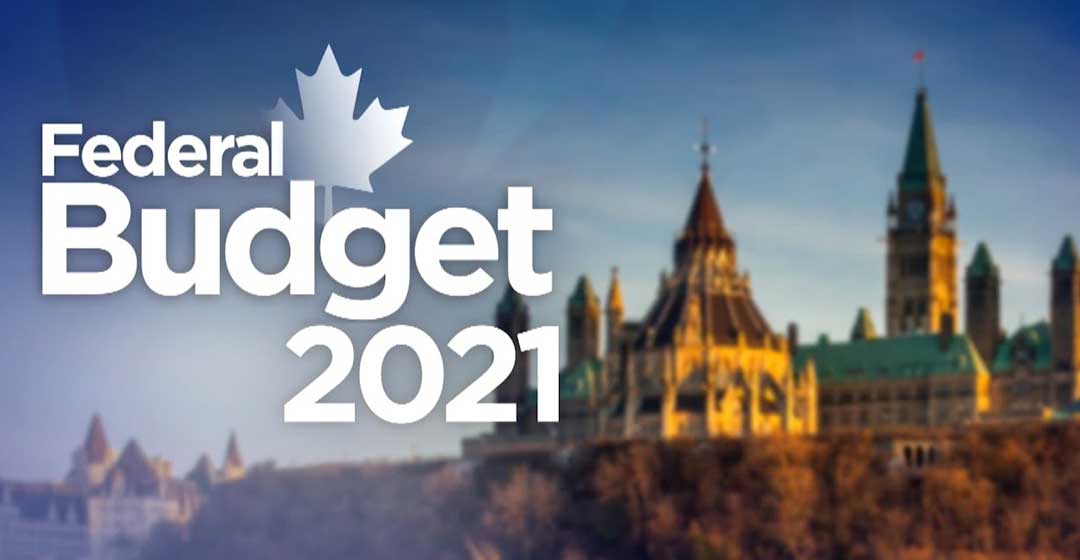
On April 19, 2021, Deputy Prime Minister and Finance Minister Chrystia Freeland tabled in the House of Commons the Liberal Government’s first federal budget in more than two years, A Recovery Plan for Jobs, Growth, and Resilience (Budget 2021). Budget 2021 contains tax measures that provide additional COVID-19 support to Canadian businesses, promote clean energy, introduce new sales and excise tax measures, limit interest deductibility and address certain cross-border financing structures. These measures include:
COVID-19 Support and Recovery
- Extending existing COVID-19 emergency business supports and introducing a new Canada Recovery Hiring Program;
- Promoting immediate expensing of the acquisition of certain depreciable capital property (up to $1.5 million per year) by Canadian-controlled private corporations;
Clean Energy Investment
- Amending the list of eligible Class 43.1 and 43.2 clean energy equipment;
- Offering limited corporate income tax rate reductions for manufacturers of zero-emission technologies;
- Creating a new input tax credit for certain capital investments in carbon capture, utilization, and storage projects;
International Tax/General Corporate Tax
- Introducing new rules to limit the amount of net interest expense that may be deducted in computing Canadian taxable income and to limit the deduction of amounts paid or received under hybrid mismatch arrangements;
- Proposals to overhaul Canada’s transfer pricing rules following the Federal Court of Appeal decision in Her Majesty The Queen v Cameco Corporation(2020 FCA 112);
- Committing to continuing the Government’s work to modernize the general anti-avoidance rule (GAAR);
Sales/Excise Taxes
- Committing to creating an interim digital services tax applicable to digital services businesses and to enact previously announced GST/HST measures applicable to e-commerce platforms;
- Introducing an excise duty on vaping products and a luxury tax on personal use vehicles, boats, and planes;
Compliance/Audit Powers
- Restructuring Canada’s transaction disclosure rules, introducing a new class of “notifiable transactions,” and requiring disclosure of uncertain tax positions; and
- Strengthening the CRA’s audit authority to compel persons to answer all proper questions for any purposes related to the administration or enforcement of, amongst other statutes, the Income Tax Act(Canada) and the Excise Tax Act(Canada).
Source: McCarthy
Newsletters
No Results Found
The page you requested could not be found. Try refining your search, or use the navigation above to locate the post.
Events & Sponsorship
No Results Found
The page you requested could not be found. Try refining your search, or use the navigation above to locate the post.
Articles & Publications
Reporting income from Airbnb
Reporting Income from Airbnb Like other, more traditional, rentals, the Canada Revenue Agency (CRA) has specific rules surrounding the declaring of rental income, which you should become familiar with as soon as possible. What you need to know about earning income...
What is Income Splitting?
What is Income Splitting? By definition, income splitting involves diverting dividend income (and certain other types of income) from one family member to another member in a lower tax bracket resulting in substantial tax savings. By way of example, let’s take the...
Real Estate Tax Update
Real Estate tax update Canada Revenue Agency (CRA) has taken substantial changes to control real estate transactions. In recent years, CRA has increased its real estate audits, particularly in the Greater Vancouver and the Greater Toronto areas, where increased real...
Snowbirds
Snowbirds, March 1, 2019 The age-old Canadian tradition for retirees: when it starts getting cold outside, Canadians will “flock” to the warmer shores of the United States. Are there any tax considerations in the United States we need to be aware of when your retired...
Beware of scammers posing as CRA employees
Beware of scammers posing as CRA employees. Scammers posing as Canada Revenue Agency (CRA) employees continue to contact Canadians, misleading them into paying the false debt. These persistent scammers have created fear among people who now automatically assume that...